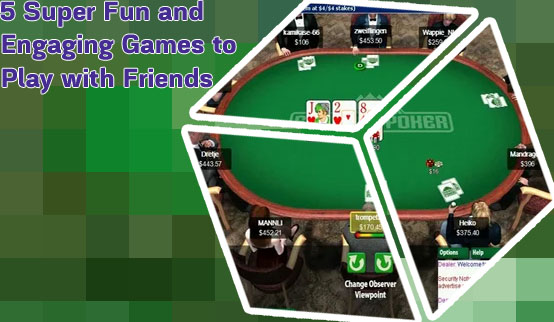Looking to host a poker tournament with your friends in the UK? Check out these three articles for tips and ideas on how to make your event a success.
How to Organize a Fun and Fair Poker Tournament with Friends

Organizing a poker tournament with friends can be a fantastic way to spend an evening, but it's important to ensure that the event is both fun and fair for all participants. To host a successful poker tournament, consider the following key aspects.
First and foremost, set clear rules and guidelines for the tournament. This includes deciding on the buy-in amount, blind structure, and any other important details. By establishing these rules upfront, you can avoid any confusion or disputes during the game.
Next, make sure to create a balanced and fair playing environment. This means providing each player with the same starting stack of chips and ensuring that the blinds increase at a reasonable rate. Additionally, consider implementing a system for re-buys or add-ons to keep the game competitive.
To add an extra element of excitement to the tournament, consider offering prizes for the winners. This could be anything from a cash prize to a gift card to a local restaurant. By incentivizing players to perform well, you can increase the overall enjoyment of the event.
Overall, organizing a fun and fair poker tournament with friends can be a great way to spend time together and enjoy some friendly competition. By following these tips, you can ensure that the event runs smoothly and everyone has a great time.
The Best Poker Tournament Setups for Hosting in the UK

Hosting a poker tournament in the UK can be a fun and exciting way to bring friends and family together for a night of friendly competition. To ensure that your event runs smoothly and is enjoyed by all, it's important to have the right setup. Here are some key items to consider when planning your poker tournament:
-
Poker table: A high-quality poker table is essential for creating an authentic casino experience. Look for a table with a padded playing surface, built-in cup holders, and a sturdy base to ensure stability during gameplay.
-
Poker chips: Investing in a set of professional poker chips will not only enhance the look and feel of your tournament but also make it easier to keep track of players' chip stacks. Choose a set with a variety of denominations to accommodate different betting levels.
-
Playing cards: Opt for plastic-coated playing cards that are durable and easy to shuffle. A standard deck of 52 cards is essential for any poker game, but having a few spare decks on hand is always a good idea in case of spills or wear and tear.
-
Dealer button: A dealer button is used to indicate which player is acting as the dealer for each hand. This rotating button helps keep track of the blinds and ensures that the action moves smoothly around the
Tips for Hosting a Successful Poker Tournament in the United Kingdom

To ensure that your event runs smoothly and is well-received by participants, there are several key tips to <a href"/">Home keep in mind.